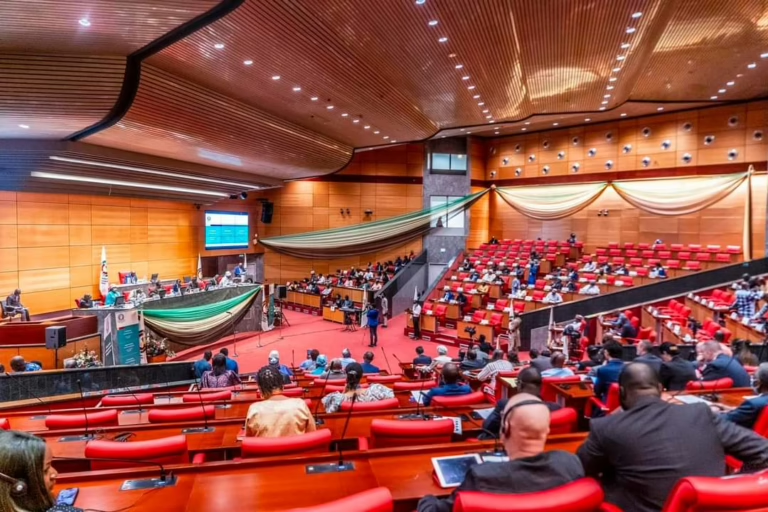The ECOWAS Parliament has reached a resolution to earmark the sum of 19,636,030 Unit of Account (UA) budget for the 2026 financial year, to fund critical sectors to better the lives of the people of West Aftica, particularly on the deployment of Artificial Intelligence (AI) for effective legislation and effective governance.
Speaker of the Parliament, Hadjia Memounatou Ibrahima, made this known in her closing remarks at the end of the 2025 Second Extraordinary Session of the regional legislature in Port Harcourt, Rivers State on Saturday.
She stressed that the budget “is the engine of our commitment to the people of West Africa,” adding that it will “enable us to carry out our priority missions, including implementing the conclusions of the seminar on AI, while ensuring virtuous and transparent management of public funds entrusted to us.”
The draft budget was adopted by the members of the ECOWAS Parliament during the plenary. The 2026 budget represents a 5% increase compared to the 2025 fiscal year budget. This reflects an upward adjustment of UA 939,233 from last year’s budget which stood at UA 18,996,897.
Out of the draft budget of UA19,636,030 for 2026, the sum of UA19,368,394 representing 98.64 % is expected to be financed through the proceeds from the Community Levy, while UA257,636, equivalent to 1.36% will accrue from others sources.
However, the Parliament has expressed concerns that some members of the community have not been up to date in the payment of the Community Levy, even as it threatened sanctions against defaulting countries.
The ECOWAS Community Levy is a mandatory 0.5% tax on goods imported into ECOWAS member-states from non-ECOWAS countries and it is designed to fund the ECOWAS Commission and its activities.
The 2025 Second Parliamentary seminar was centered around Artificial Intelligence, to explore the immense potential to modernise parliarmentary work, strengthen accountability, and bring its institutions closer to citizens. It was followed by the 2025 Second Extraordinary session of the Parliament.
Speaking on the risks of AI, especially on disinformation and misinformation, the Speaker said: “We have also measured the ethical challenges it raises, particularly in the face of disinformation risks. The recommendations from these reflections will lay the foundation for a visionary regulatory framework, anchored in respect for human rights, inclusion, and democratic values that underpin our Community. We are laying the first stone for responsible and ethical African ownership of artificial intelligence.”
She expressed appreciation to Nigeria’s President Bola Tinubu; FCT Minister Nyesom Wike; Deputy Governor of Rivers State, Prof. Ngozi Odu; Deputy President of the Nigerian Senate and First Vice-President of the ECOWAS Parliament, Senator Jibrin Barau, among others, for their immense contributions to the success of the sessions.
She also expressed gratitude to all honourable deputies of the ECOWAS Parliament for their participation in the success of the work, particularly the members of the ad-hoc committees on the Administration, Finance, and Budget Committee, whose informed recommendations will guide future action.

















